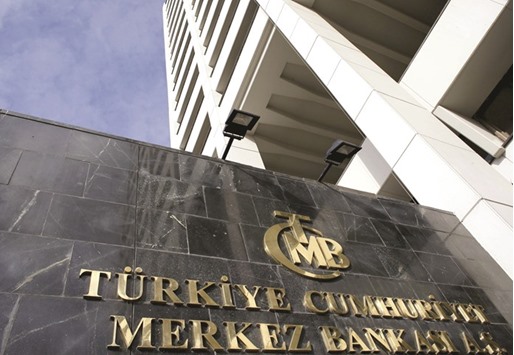Turkey’s consumer price inflation climbed more than estimated in December, led by a surge in food, drinks and tobacco prices.
The annual inflation rate was 8.53% last month, compared with 7% in November, Turkey’s statistics institute said yesterday. The median estimate in a Bloomberg survey of economists was an increase to 7.6%, with 8.5% the highest prediction.
Food prices rose an annual 5.7%, compared with 3.6% a month earlier. Alcohol and tobacco prices rose 7.33% in the month and 32% over the previous year.
The following are the highlights from the report: Annual inflation rate rose for the first time since July. The cost of transportation services, which are sensitive to the weakening lira and subsequent rises in fuel prices, rose an annual 12.4% through last month, compared with 9.6% in November.
Core inflation, which excludes volatile items such as food, energy and gold, accelerated to 7.5% from 7% in November. Monthly inflation was 1.64%; the median estimate in a Bloomberg survey was 0.9%.
Producer prices rose an annual 9.94% through December, fastest pace in two years. The central bank missed both its inflation target of 5% and its year-end forecast of 7.5%; because the miss was more than 2 percentage points, the central bank is required by law to write an open explanatory letter to the government.
The central bank warned last month about inflationary risks from the rise in raw food prices, tax increases for tobacco products and increasing energy costs. Although the acceleration in headline inflation was higher than most estimates, it was probably within the range the bank saw as possible, according to Odeabank’s Sakir Turan, the only analyst in the Bloomberg survey who accurately predicted the annual and monthly inflation.
“There may not be a monetary policy response to the rise in the inflation rate unless there is a significant deterioration in financial conditions, such as a rapid depreciation in the currency,” Turan said. “The bank may maintain its policy in January, saying that such an acceleration in inflation was already something it had forecast.”
The lira weakened after the inflation report and was trading 0.6% lower at 3.5650 per dollar in Istanbul.
Food prices, historically a volatile category, make up roughly a quarter of the consumer price index and therefore cause deep fluctuations in the headline figure, Economy Minister Nihat Zeybekci said after the report in Ankara. Their weight in the inflation basket should be revised, he said.
“When you keep the weight of such a volatile item at a much higher level than peer countries, then the impact becomes much bigger,” he said.

Turkey’s central bank headquarters is seen in Ankara. The central bank warned last month about inflationary risks from the rise in raw food prices, tax increases for tobacco products and increasing energy costs.
